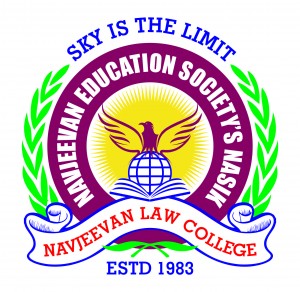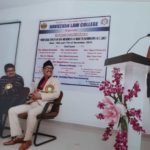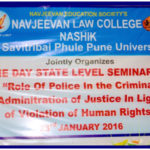Activity Info
Two days State Level seminar was organized in collaboration with Savitribai Phule Pune University Pune, on “Socio-Legal Effects of New Amendments in Right to Information Act,2005” on 16th & 17th November 2019.
THEME OF THE SEMINAR
After being passed in Loksabha, The RTI Amendment Bill is paused in Rajya-Sabha on 25th July 2019The newly amended provisions of RTI Act are widely criticized on the ground of interference of government and diluting the provision of erstwhile Act. It is said that the amendment are widely disturbing the main objectives of the Act. It is also said that it is an encroachment and the States power to make the rules under section 27 of the RTI Act, 2005 more or less the RTI amendment, 2019 is severe blow to the federal structure of the RTI Act and the Constitution of India as per the allegation of the RTI activists.
Pros and Cons of these amendment Of RTI Act on the right of common man to obtained the information which is recognized as fundamental right under Article 19(a), Freedom of Speech and Expression well recognized in- People’s Union for Civil Liberties V/S Union of India. (2003), by the Supreme Court of India.
This Seminar was arranged to provide a forum to the Jurist, Academicians, Advocates, NGO’s, activists and law pursuing students to discuss the newly amendment in the light of fundamental rights guaranteed under Indian Constitution to the citizens of India and the Directive Principles of State Policies speaks about the States duty to be transparent, accountable towards the public and to work in good faith to achieve the objectives enshrined in the Preamble of welfare State.
Objectives –
Thorough the discussion on newly amended provisions of RTI Act, 2005
To discuss the impact of newly amended provisions on the object of passing of RTI Act, 2005
The impact on the RTI movement
To discuss the positive and negative aspects of RTI amendments on the rights of citizens of India
To know the Judicial aspects in the implementation of provisions of the RTI Act.
To discuss all other issues related and in connection with social, economic, political, legal aspect of RTI on human life.
Resource Person for this Two days state level seminar was-
On 16th Nov. 2019
Session I
Dr. Pratapsinh Salunke
“Importance of RTI Act and eradication of corruption- legal perspective.”
Session II
Mr. Vivek Velankar
“Pros and Cons of New RTI Act- a present senario.”
Session III
Dr.Ashwinikumar Bharadwaj
“New Amendments in RTI Act- An overview.”
On 17th Nov. 2019
Session IV
Dr. Amol D. Chavan
“Importance of RTI in welfare state.”
Session V
Shri. Shivkumar Ram Channangire
-“Enforcement of RTI in Society.”
Session VI
Dr. N.D. Chaudhary
“RTI Act and its new amendments- impact on society”











